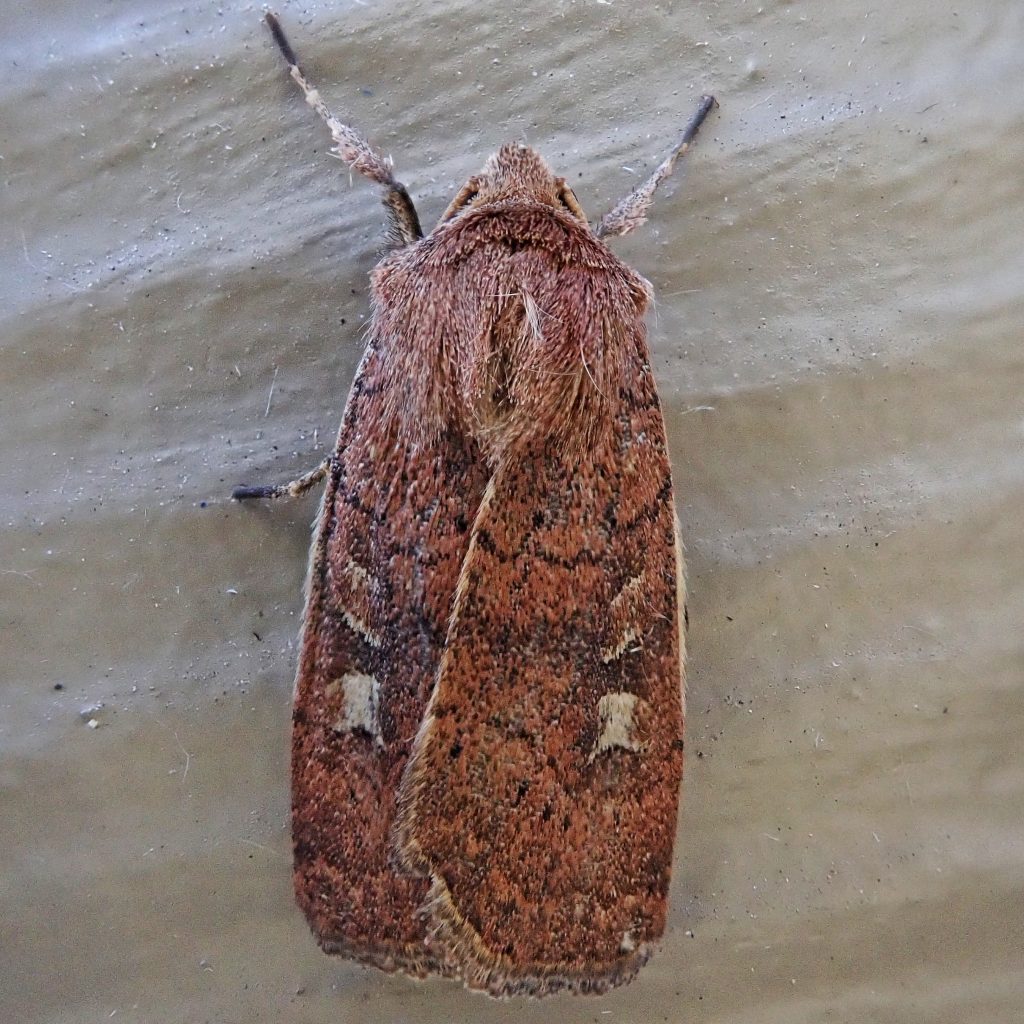
This distinctive and handsome Noctuid moth is a Eurasian import that was first found in North America in the Portland, Oregon area in 1933. It has since spread throughout the west side of the Cascades, and along the Columbia and Snake rivers, but has so far remained confined to the PNW. It is a serious agricultural pest of grass growing operations in western Oregon, and is also found in many natural areas.
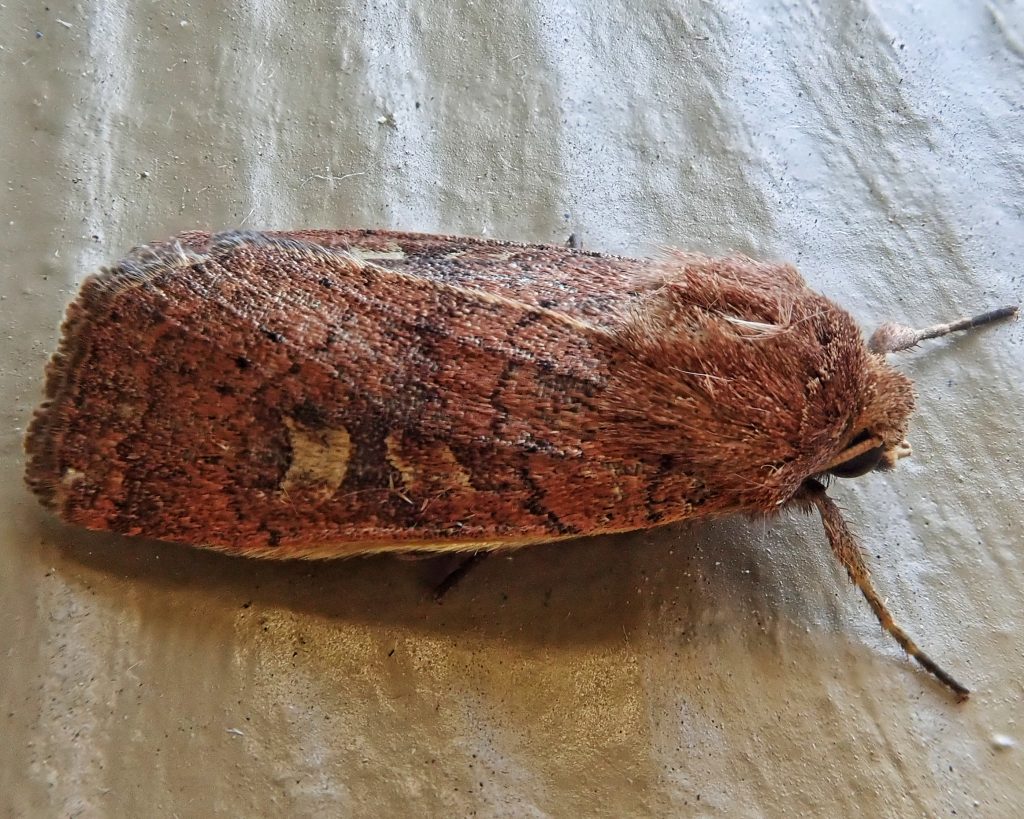
Description-Medium sized (fw length 15-17mm) reddish brown moth, with ocher filling in the orbicular and reniform spots, zigzag, black, single transverse lines, that are sometimes composed mostly of dots, diffuse dark scales between the orbicular and reniform spots, and a greyish yellow hindwing.
Similar species–Diarsia rosaria or dark near the margins and has doubled transverse lines.
Habitat-Grassy areas of all sorts, and along rivers and streams
Range-Eurasian native; primarily west of the Cascades , and along the Columbia and Snake Rivers.
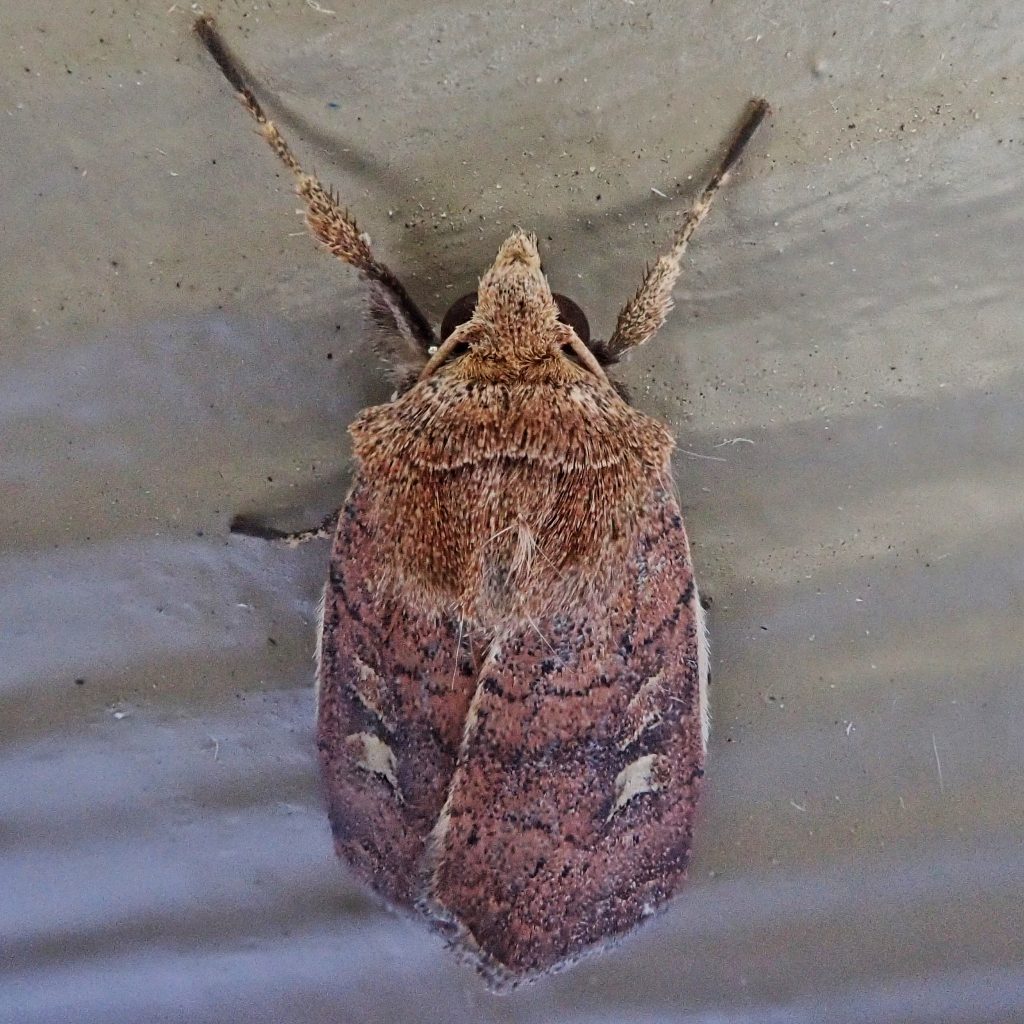
Eats-Larvae are climbing cutworms ( which means they often feed on foliage as well as stems) and feed mostly on non-native, coarse grasses like rye (Elymus spp.) and orcheard grass (Dactylis glomerata), but they will also eat other grasses and forbs; adults feed on nectar.
Eaten by-Birds and other insectivores
Reproduction– Larvae are nocturnal and remain active and feed throughout the winter.
Adults active-August and September
Etymology of names–Xestia is from the Greek for ‘polished/smooth’, and refers to the glossy forewings of some members of this genus. The specific epithet xanthographa is from the Greek for ‘yellow marking’, and refers to the yellowish filling of the orbicular and reniform spots.
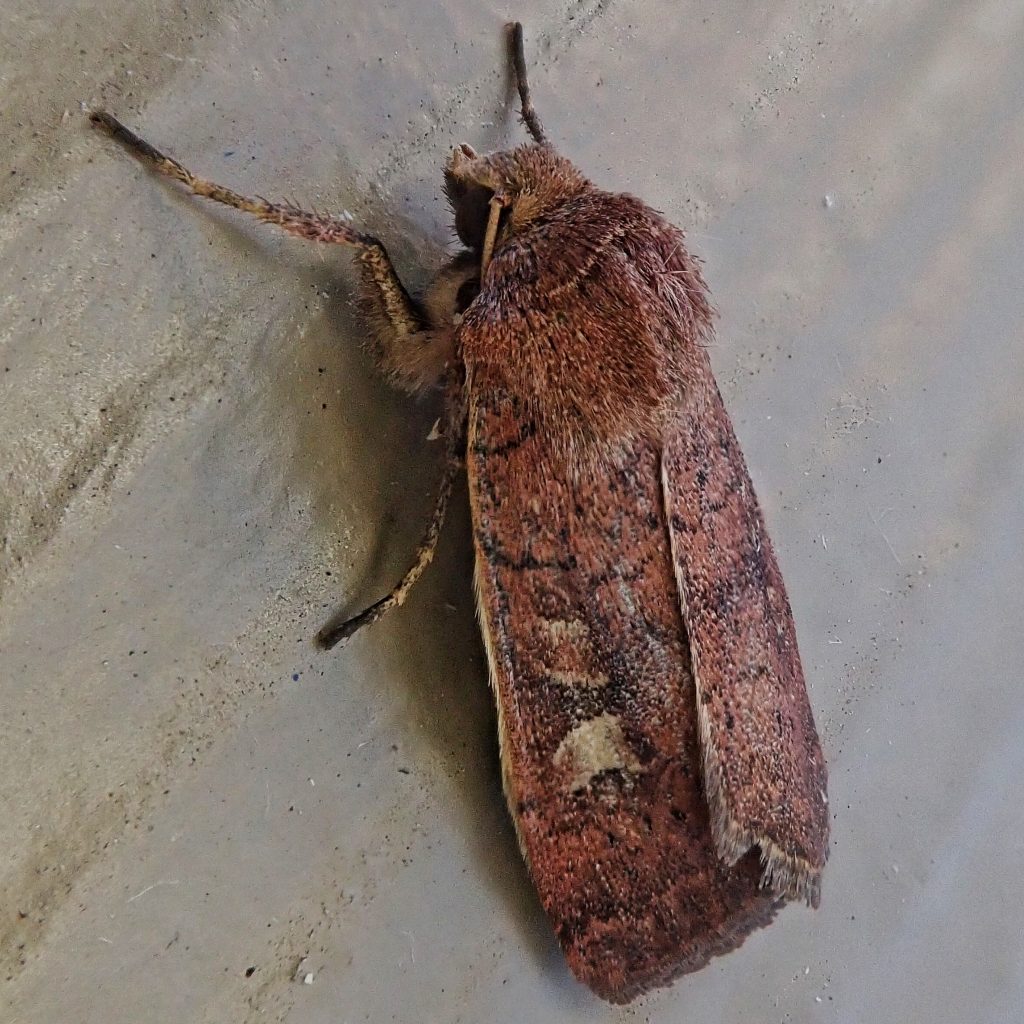
https://bugguide.net/node/view/143616
http://mothphotographersgroup.msstate.edu/species.php?hodges=10945
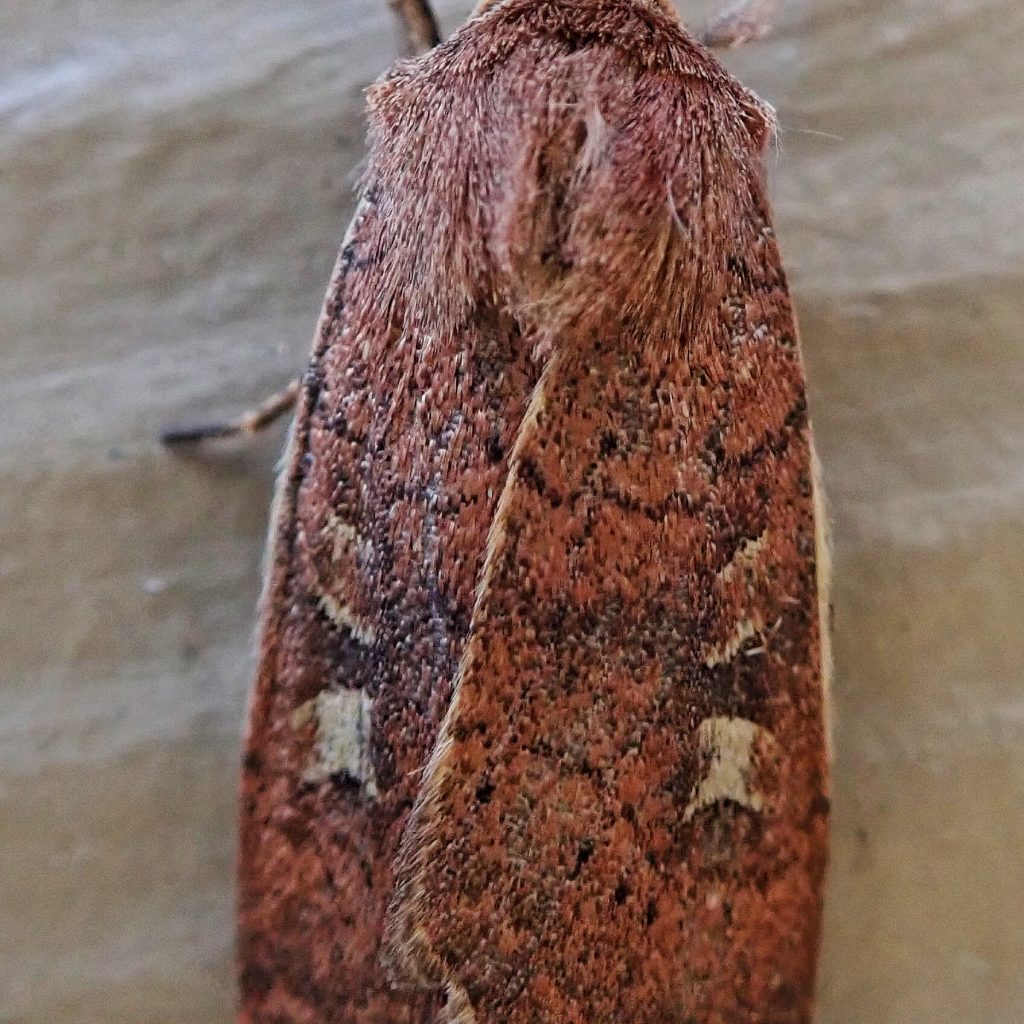
Just had one of these for the second time today (beforethat on the same day, 200904!).
Had a hard time to iodentify it and am grateful – as always – for your comprehensive and systematic coverage.
See the following link:
http://www.vicnhs.bc.ca/?cat=8
Thanks for your very informative blog.
What can we do to make it searcheable and accessible?
Jochen
Nice photo of the Square-spot.
It’s already searchable. And I thought it was accessible.